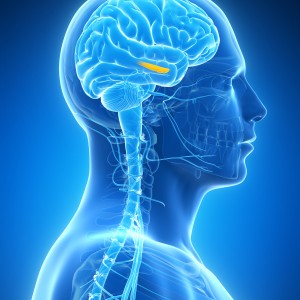Men Exhibit Worse Memory Performance than Women During the Aging Process
Written by |

 Researchers at the Mayo Clinic and Foundation in Minnesota revealed that within the natural aging process, men have worse memory performance than women. The study was recently published in the journal JAMA Neurology and is entitled “Age, Sex, and APOE ε4 Effects on Memory, Brain Structure, and β-Amyloid Across the Adult Life Span.”
Researchers at the Mayo Clinic and Foundation in Minnesota revealed that within the natural aging process, men have worse memory performance than women. The study was recently published in the journal JAMA Neurology and is entitled “Age, Sex, and APOE ε4 Effects on Memory, Brain Structure, and β-Amyloid Across the Adult Life Span.”
Changes in cognitive performance are part of the natural aging process. In this study, researchers assessed memory performance and brain structure in individuals according to their hippocampal volume (a region in the brain linked to memory and spatial navigation) and the presence of amyloid plaques in the brain.
Amyloid plaques are aggregates of amyloid proteins that are associated with Alzheimer’s disease, an age-related neurodegenerative disorder where individuals suffer a decline in cognitive abilities, behavior and personality changes, and ultimately severe loss of mental function. Also associated to Alzheimer’s disease is the APOE ε4 gene, a risk factor for Alzheimer’s development that has been shown to significantly reduce the age of onset for this disorder. Researchers have hypothesized that the presence of amyloid plaques and APOE ε4 allele are directly associated with poorer memory performance and cognitive decline.
“Our objectives were to compare age, sex and APOE ε4 effects on memory performance, hippocampal volume and amyloid positron emission tomography (PET) across the adult lifespan,” wrote the research team.
In this study, 1,246 cognitively normal individuals aged 30 to 95 years have been submitted to magnetic resonance imaging (MRI), PET and memory tests. Participants were divided into four groups depending on their sex and presence of the APOE ε4 gene.
Researchers found that the memory seemed to deteriorate from the age of 30 up to 90s. Hippocampal volume was also found to gradually worsen from the age of 30; this decline increased even more from the age of 70 onwards. In terms of amyloid plaques, the average quantity determined by PET scans was low until the age of 70; older participants exhibited a higher accumulation of amyloid protein. Individuals with APOE ε4 were found to have higher amyloid accumulation from the age of 70 onwards in comparison with individuals not carrying the gene. The team determined that the age at which 10% of the cohort analyzed had amyloid accumulation was 57 years for individuals carrying the APOE ε4 gene and 64 years for non-carriers. Interestingly, it was found that beyond the age of 40, men had worse memory in comparison to women, and beyond 60, lower hippocampal volume than women. This worse memory performance was independent of the APOE ε4 carrier status of the individuals.
The research team concluded that amyloid accumulation occurs later in life, while declines in brain structure and memory function are detected earlier, most likely as part of the natural aging process and not associated with amyloid accumulation.
“Importantly, this work does not only address the likely highly significant impact of cerebral amyloid accumulation on dementia risk, but also extends current knowledge relating to the impact of the aging process across the spectrum of ages 30 to 95 years to brain structure, amyloid accumulation and memory performance among cognitively normal individuals,” noted Dr. Charles DeCarli of the University of California at Davis, in Sacramento. “Establishing what is normal creates avenues for new research, increasing the likelihood of discovering novel therapeutics for late-life disease states, which is a laudable goal indeed,”





